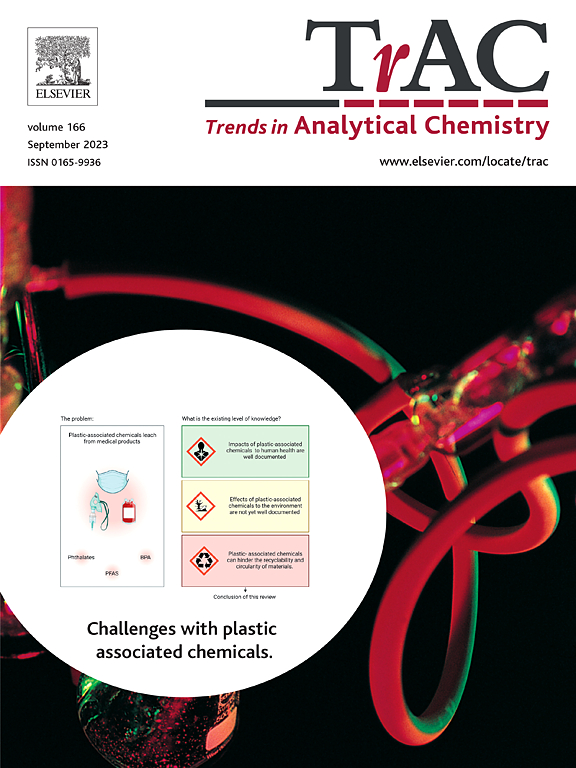Towards sustainable analytical chemistry
IF 12
1区 化学
Q1 CHEMISTRY, ANALYTICAL
引用次数: 0
Abstract
Sustainability is often used interchangeably with greenness, narrowly framed using environmental criteria alone. This conflation stems from the inherent conceptual vagueness of sustainability, an attribute that constitutes both its greatest strength and most notable weakness. This contribution discusses important conceptual points and key ideas related to sustainability in analytical chemistry that can serve as the theoretical framework for meaningful interpretation, implementation and evaluation of the concept. Sustainability is discussed using the three interdependent pillars of economy, society, and environment, critiquing reductionist approaches, and advocating for a systems thinking approach to prevent invariably shifting risks elsewhere in the system. It also explores the current perception of sustainability, emphasizing the gap between partial compliance with environmentally sound criteria and the systemic changes needed for genuine sustainability. Advancing the field beyond incremental technical and technological improvements toward systemic change is essential for maintaining the field's relevance in the context of global sustainability efforts.

走向可持续分析化学
可持续性通常与绿色交替使用,仅以环境标准为狭隘框架。这种合并源于可持续性固有的概念模糊性,这一属性既构成其最大的优势,也构成其最明显的弱点。这篇文章讨论了分析化学中与可持续性相关的重要概念点和关键思想,可以作为有意义的解释、实施和评估概念的理论框架。本文从经济、社会和环境这三个相互依存的支柱出发,对还原论方法进行了批判,并倡导采用系统思维方法来防止风险在系统中转移。它还探讨了目前对可持续性的看法,强调部分遵守无害环境标准与真正可持续性所需的系统变革之间的差距。推动该领域超越渐进式技术和技术改进,走向系统性变革,对于维持该领域在全球可持续性努力背景下的相关性至关重要。
本文章由计算机程序翻译,如有差异,请以英文原文为准。
求助全文
约1分钟内获得全文
求助全文
来源期刊

Trends in Analytical Chemistry
化学-分析化学
CiteScore
20.00
自引率
4.60%
发文量
257
审稿时长
3.4 months
期刊介绍:
TrAC publishes succinct and critical overviews of recent advancements in analytical chemistry, designed to assist analytical chemists and other users of analytical techniques. These reviews offer excellent, up-to-date, and timely coverage of various topics within analytical chemistry. Encompassing areas such as analytical instrumentation, biomedical analysis, biomolecular analysis, biosensors, chemical analysis, chemometrics, clinical chemistry, drug discovery, environmental analysis and monitoring, food analysis, forensic science, laboratory automation, materials science, metabolomics, pesticide-residue analysis, pharmaceutical analysis, proteomics, surface science, and water analysis and monitoring, these critical reviews provide comprehensive insights for practitioners in the field.
 求助内容:
求助内容: 应助结果提醒方式:
应助结果提醒方式:


